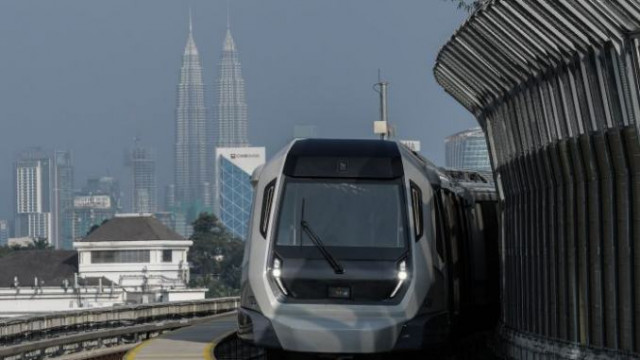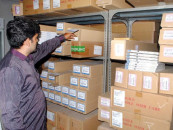Malaysia resumes $10-billion China-backed rail project
It had been suspended last year when a corruption-plagued government was ejected from power

It had been suspended last year when a corruption-plagued government was ejected from power. PHOTO: REUTERS
The 640-kilometre (400-mile) line will link northeast Malaysia, near the Thai border, to the country's main port on the busy Strait of Malacca in the west, forming part of a network it is hoped will eventually run from southern China right through Southeast Asia.
At a ceremony in the north-eastern state of Terengganu, Malaysian Transport Minister Anthony Loke said the line would improve "public transport systems in rural areas, especially in the east coast of peninsular Malaysia".
The project, part of China's $1-trillion Belt and Road Initiative, was among several Beijing-financed infrastructure initiatives put on hold in Malaysia after last year's defeat of a long-ruling coalition.
Critics said the projects lacked transparency, could saddle the government with debt, and were in reality aimed at quickly funnelling money to former leader Najib Razak to help him pay back cash looted from Malaysian sovereign wealth fund 1MDB.
But after months of negotiations between the Malaysian and Chinese governments and the companies involved, an agreement was reached in April to resume work on the East Coast Rail Link at a reduced cost.
The east coast is poorer than other parts of peninsular Malaysia.
Work was originally started on the line in August, 2017, but only a small amount had been completed when it was suspended in July last year.
The cost of the 20-station line has been reduced to 44 billion ringgit ($10.7 billion) from an original price of 65.5 billion ringgit, while the route of the line has been altered and the completion date pushed back to 2026.
Loke said 85% of the project's cost will be financed by funding from China's Export-Import Bank.
Beijing's Belt and Road Initiative includes maritime, rail and road projects in Asia, Africa and Europe.



















COMMENTS
Comments are moderated and generally will be posted if they are on-topic and not abusive.
For more information, please see our Comments FAQ